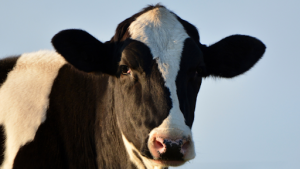Guest blog from Arizona Dept. of Agriculture – Roland S. Mader, R.S. Administrator Dairy / Egg programs
 The U.S. Department of Agriculture (USDA), the U.S. Food and Drug Administration (FDA), and the Centers for Disease Control and Prevention (CDC), along with state partners, continue to investigate an outbreak of Avian Influenza A (H5N1) virus impacting dairy cows in multiple states. Infection with the virus is causing decreased lactation, low appetite, and other symptoms in affected cattle.
The U.S. Department of Agriculture (USDA), the U.S. Food and Drug Administration (FDA), and the Centers for Disease Control and Prevention (CDC), along with state partners, continue to investigate an outbreak of Avian Influenza A (H5N1) virus impacting dairy cows in multiple states. Infection with the virus is causing decreased lactation, low appetite, and other symptoms in affected cattle.
The FDA has been testing dairy products nationally. No live virus has been identified in the dairy products that were tested and they are considered safe to consume. The FDA and USDA have indicated that based on the information currently available, the commercial milk supply is safe because of the pasteurization process and the diversion or destruction of milk from sick cows. While potential exists for contracting the virus from handling or consuming raw milk, there is no concern about the safety of the commercial milk supply, due to the effectiveness of pasteurization.
The pasteurization process has served public health well for more than 100 years. Pasteurization is a process that kills harmful bacteria and viruses by heating milk to a specific temperature for a set period of time to make milk safe. Even if a virus is detected in raw milk, pasteurization is generally expected to eliminate pathogens to a level that does not pose a risk to consumer health. It is strongly recommended that everyone drink pasteurized milk that has been treated to kill harmful germs such as H5N1.
H5N1 transmission to humans is rare but has happened; people at greatest risk are farm workers and other individuals working closely with dairy cattle or their milk, as well as potentially people consuming unpasteurized milk. Only one associated human case from a person exposed to infected cows has been linked with this outbreak in dairy cows to date and the CDC says risk to the general public remains low. The Arizona Department of Agriculture is in contact with Arizona dairy farms and is monitoring the situation closely.
The FDA and USDA are working closely to collect and evaluate additional data and information specific to H5N1 in dairy cattle and to support state counterparts as this emerging disease in dairy cattle is managed. These important efforts are ongoing, and we are committed to sharing results as soon as possible. In the meantime, the FDA and USDA continue to indicate that based on the information we currently have, our commercial milk supply is safe.
 Guest blog provided by Roland Mader, R.S. Administrator of Dairy / Egg programs, Arizona Department of Agriculture
Guest blog provided by Roland Mader, R.S. Administrator of Dairy / Egg programs, Arizona Department of Agriculture











